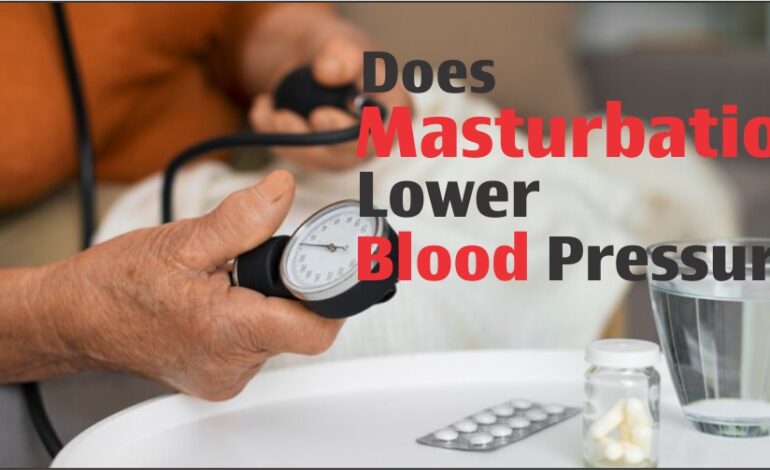In today’s society, discussions surrounding masturbation can evoke a range of emotions, from curiosity to discomfort. However, it’s essential to approach this topic with sensitivity and understanding, as excessive masturbation can have significant implications on an individual’s physical, psychological, and social well-being. In this comprehensive guide, we’ll explore the complexities of masturbation and How to Stop Masturbating, explore its effects, and provide practical strategies for managing and reducing its frequency.
Table of Contents
Introduction
Masturbation, the act of self-stimulating one’s genitals to achieve sexual pleasure, is a natural and normal aspect of human sexuality. Despite its prevalence, misconceptions and stigma often surround this topic, leading many individuals to feel shame or guilt about their masturbatory habits. Understanding how to act masturbation responsibly can help alleviate these feelings. It’s essential to recognize that masturbation, like any other sexual behavior, exists on a spectrum, and what may be considered excessive for one person may be entirely normal for another.
The Effects of Excessive Masturbation
Excessive masturbation can have far-reaching consequences, impacting various aspects of an individual’s life. From a psychological perspective, frequent masturbation may lead to feelings of guilt, shame, or anxiety, particularly if it interferes with daily functioning or relationships. Additionally, compulsive masturbation can be a symptom of underlying mental health issues, such as depression or obsessive-compulsive disorder.
Physically, excess masturbation can result in genital irritation or injury, including chafing or soreness. In severe cases, repetitive motions may lead to desensitization or loss of sensation in the genitals, affecting sexual satisfaction and performance.
Socially, individuals who engage in excessive masturbation may withdraw from social interactions or neglect responsibilities in favor of indulging in solitary sexual activities. This isolation can exacerbate feelings of loneliness and further maintain the cycle of compulsive behavior.
Recognizing Problematic Masturbation Habits
Identifying problematic masturbation habits requires self-awareness and honesty. Some common signs of excessive masturbation include:
- We are spending a significant amount of time engaging in masturbation, to the detriment of other activities.
- I am feeling a lack of control or inability to stop masturbating, despite negative consequences.
- Experiencing distress or impairment in functioning due to compulsive masturbation.
It’s essential to differentiate between healthy sexual exploration and compulsive behavior. While occasional masturbation is a normal part of human sexuality, persistent patterns of excessive masturbation may indicate an underlying issue that warrants attention.
Why Do People Masturbate?
Understanding the motivations behind masturbation can provide insight into its prevalence and significance in human behavior. People masturbate for a variety of reasons, including:
- Sexual pleasure: Masturbation is a natural way to experience sexual gratification and explore one’s own body.
- Stress relief: Masturbation can serve as a form of stress relief or relaxation, helping individuals unwind after a long day.
- Curiosity: Adolescents and young adults often engage in masturbation as a means of discovering their bodies and sexual preferences.
- Loneliness or boredom: Masturbation may provide temporary relief from feelings of loneliness or boredom, offering a momentary escape from negative emotions.
Setting Realistic Goals for Masturbation Reduction
If you’ve recognized that your masturbation habits may be excessive and are seeking to reduce their frequency, it’s essential to set realistic and achievable goals. Consider the following steps:
- Assess Your Current Habits: Take stock of how often you masturbate and the circumstances surrounding these behaviors. Are there specific triggers or patterns that contribute to excessive masturbation?
- Establish Achievable Targets: Set small, attainable goals for gradually reducing the frequency of masturbation. Aim to decrease the number of times you masturbate per week or find alternative ways to cope with stress and boredom.
- Track Your Progress: Keep a journal or log to monitor your progress and reflect on any changes in your habits or feelings. Celebrate small victories and acknowledge challenges along the way.
By setting realistic goals and tracking your progress, you can gradually gain control over your masturbatory habits and work towards a healthier balance in your life.
Strategies to Decrease Masturbation Frequency
Reducing the frequency of masturbation requires a multifaceted approach that addresses both the physical and psychological aspects of the behavior. Consider implementing the following strategies:
- Limit Exposure to Triggers: Identify and avoid situations or stimuli that trigger the urge to masturbate, such as pornography or idle alone time. By reducing exposure to these triggers, you can decrease the likelihood of engaging in compulsive masturbation.
- Engage in Alternative Activities: Find healthy, fulfilling activities to occupy your time and distract yourself from thoughts of masturbation. Consider pursuing hobbies, spending time with friends or loved ones, or engaging in physical exercise.
- Seek Professional Guidance: If you’re struggling to control your masturbatory habits on your own, don’t hesitate to seek support from a healthcare professional or therapist. They can offer personalized guidance and strategies for managing compulsive behaviors.
Building a Supportive Environment
Building a supportive environment is essential for successfully managing and reducing excessive masturbation. Surround yourself with friends, family, or support groups who can offer encouragement, understanding, and accountability. Consider joining a therapy group or seeking individual counseling to explore the underlying factors contributing to your masturbation habits and develop coping mechanisms.
Conclusion
In conclusion, managing excessive masturbation requires a holistic approach that addresses the physical, psychological, and social aspects of the behavior. By gaining insight into the motivations behind masturbation, setting realistic goals, and implementing strategies for reducing masturbation, individuals can regain control over their sexual behaviors and improve their overall well-being. Remember, seeking support and guidance from trusted professionals or support networks is a valuable step towards achieving a healthier relationship with masturbation and sexuality.


